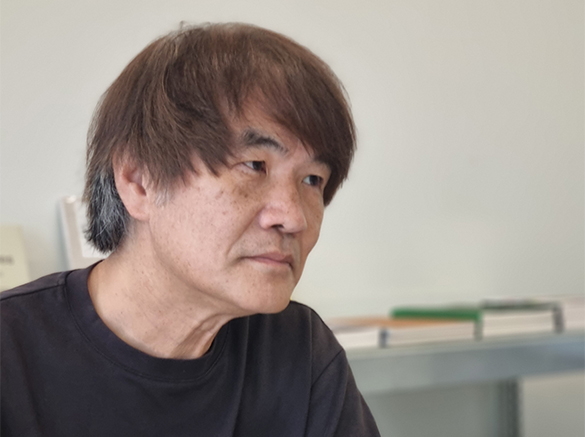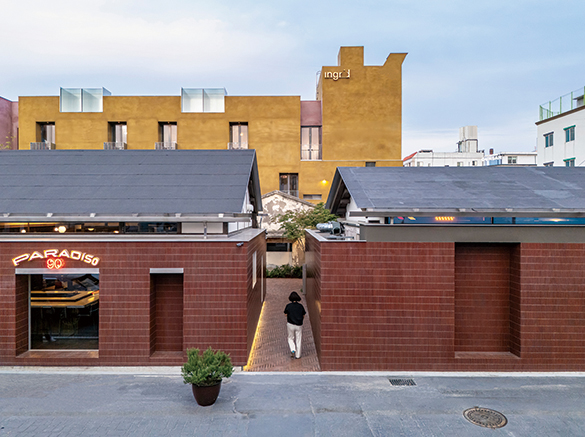SPACE September 2025 (No. 694)
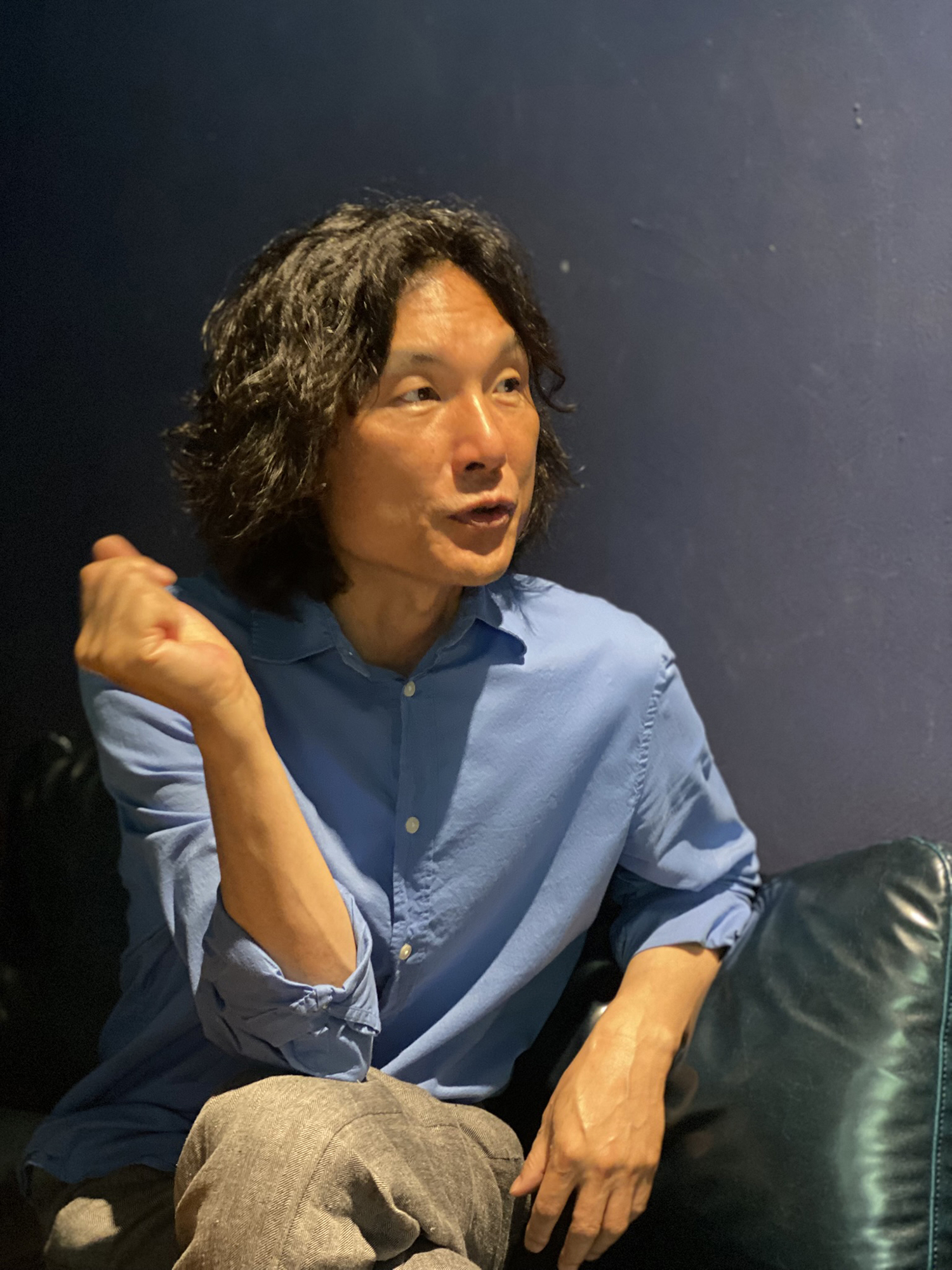
©Kim Jeoungeun
Song Sungjin principal, ShareWe LC. × Bang Yukyung
Song Sungjin (Song): For ten years I ran The Bar dopo near the Seoul Arts Center. I always dreamed of hosting jazz performances in a restaurant. On a trip home to see friends, I stumbled across a spot near Eunpa Lake. The moment I saw it, I thought, ‘This is the place!’ I signed the lease right away—I’m pretty impulsive that way! (laugh) That’s how Paradiso Perduto (hereinafter Paradiso) opened in 2010, and since then we’ve been holding outdoor concerts every spring and fall.
Bang: After nearly 15 years of running Paradiso, how do you see Gunsan now?
Song: In 2010 the city’s population was about 280,000 and I sensed a real hunger for culture. My cousin, Son Jean of ISON Architects, designed the Paradiso space, and he and I used to say, ‘It’s not that people here don’t know how to enjoy culture—they just haven’t been given the chance.’ Gunsan has always been receptive to new ideas. As a colonial port, it absorbed modern influences early. Later, when U.S. troops were stationed here, American food showed up, Billboard hits played in the streets—it was a bit like Itaewon. It’s also always been a city of outsiders. Migrants from across Korea, from China, even from the North Korea, settled here long ago and made it home. So people here aren’t hostile to newcomers. On the other hand, they’re less likely to cling tightly to what’s ‘local’. That, too, is part of Gunsan’s history. Running Paradiso taught me something else: in a place like Gunsan, news spreads faster through people than through media or social networks. That’s why with Project Re\Turning Gunsan (hereinafter Re\Turning Gunsan), I hope it gets shared more through word of mouth and visitors’ experiences than through marketing campaigns.
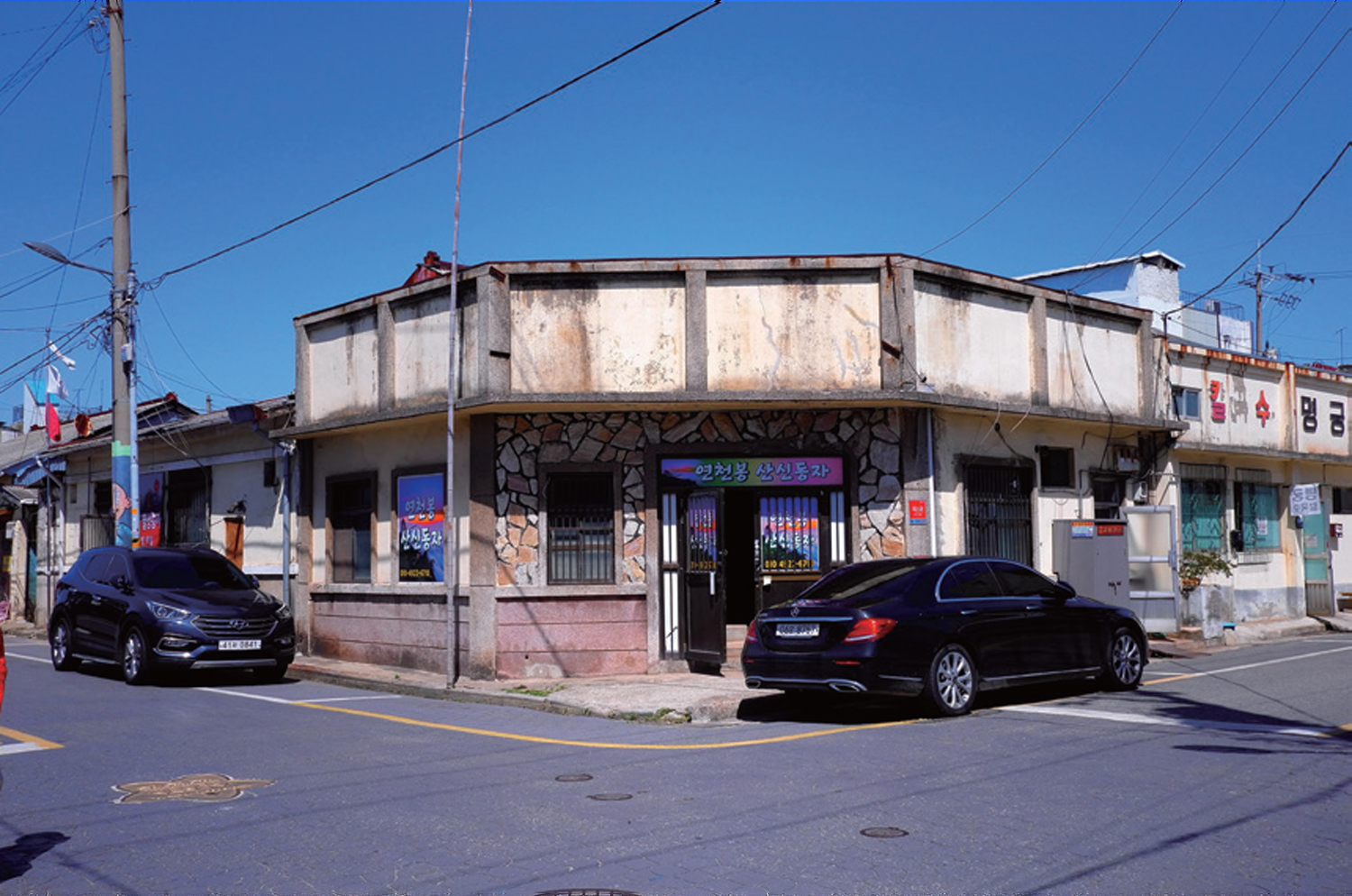
A view of the existing site (now the jazz club’s entrance). ©ISON Architects
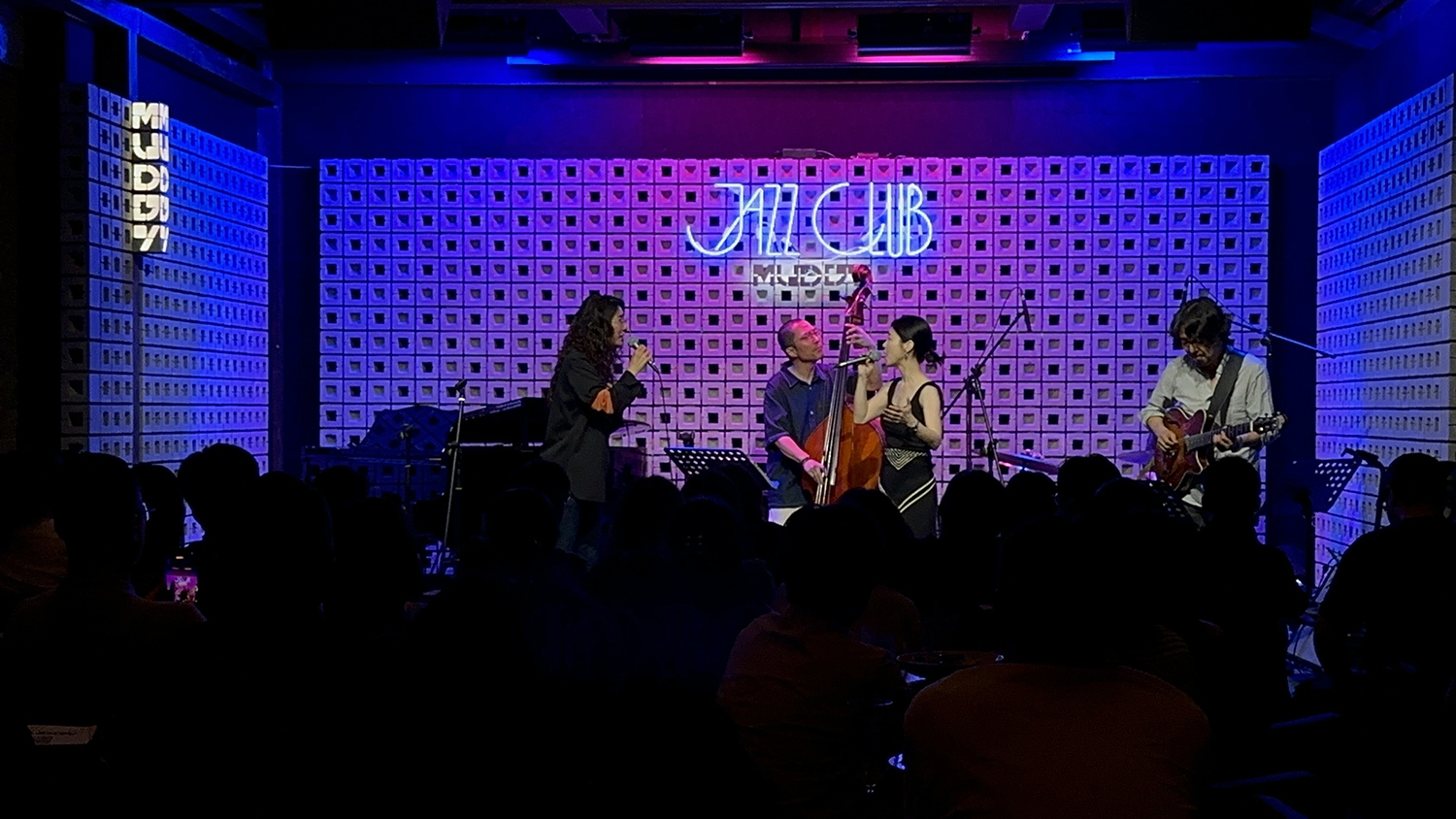
Performance at jazz club Muddy. ©ISON Architects
Bang: You started Re\Turning Gunsan in Yeonghwa-dong, an old downtown area in decline. And instead of working on it as an individual, you launched the project through a company called ShareWe LC. Who was involved?
Song: My dream had always been to run a jazz club in a quiet neighbourhood. Ten years after moving back, I found a perfect plot in Yeonghwa-dong (in a corner filled with fortune-tellers) and bought it in February 2019. With an academic friend from Kangwon University and a younger lawyer, we set up ShareWe LC. The idea was simple: let’s build a great playground in Gunsan. Soon others joined—a doctor friend working in the public sector, the president of an aluminum company, and the art director Jung Yumi from Jeju. They didn’t come in as investors but simply because they wanted to. That’s what made it different. From a business perspective, Re\Turning Gunsan is risky. But to them, it looked fun and meaningful! (laugh) Later, an acquaintance from the Jeonju District Court’s Gunsan branch and a younger business associate with four kids also joined. Now we’re even preparing to open a hotel. I feel lucky to be surrounded by people who value space and community over profit, people who love Gunsan and Re\Turning Gunsan.
Bang: What began as a jazz club has now expanded into a hotel and a multipurpose complex. How did the different programmes come together?
Song: It feels like watching a child grow up. Apart from the jazz club, things didn’t really develop through my direction, but rather by going with the flow of the circumstances and adapting as they came. Over about two years, the site grew from a single 250-pyeong lot to nine more, totaling 600-pyeong. As the initial plan grew into a master plan, what I first thought would be a small guesthouse eventually became a hotel. A good space creates relationships that expand outward, and that kind of expansion also makes you reflect inward. What started as an effort to create a decent playground for the community has grown into a place where locals welcome travelers as guests. From the very beginning the focus was on nightlife that centred on the jazz club, but now there are other leisure and entertainment spaces surrounding it! (laugh) Before a performance, guests can have dinner with a glass of wine, and after the show they can enjoy cocktails and single malts before turning in for the night. It’s not about introducing a tourist culture tailored to visitors—what I wanted was to bring back a neighbourhood that is slowly disappearing through memories of Gunsan’s own local culture of play. We are creating this together.
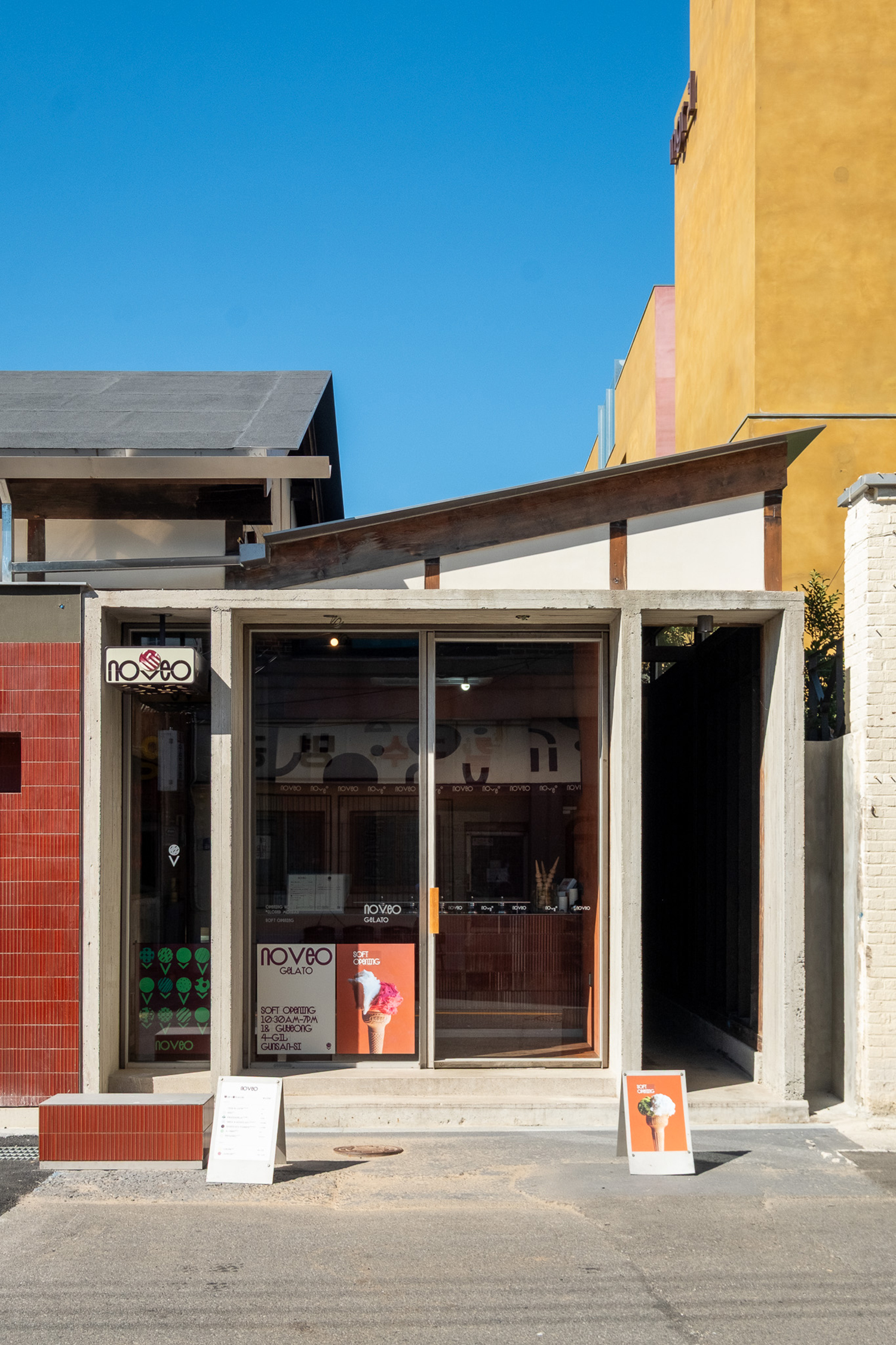
Gelateria Noveo. Image courtesy of ShareWe LC
Bang: I heard the development process was met with many twists and turns. The lifting of the fire-prevention zone designation was a decisive moment, wasn’t it?
Song: Our aim was to preserve the original form of the existing Japanese colonial-era houses. But the foundations were weak, and much of the timber couldn’t be reused, so we had no choice but to dismantle the century-old frame and carry out a major renovation by reassembling salvaged wood. Gunsan has designated Architectural Asset Promotion Districts to preserve its modern buildings. The problem was that our block was also classified as a fire-prevention zone, which put us in crisis. The fire-prevention regulations, established in 1987, were designed to prevent flames from spreading by requiring old wooden structures to be rebuilt in concrete. The moment you tried to restore a modern wooden building, you had to rebuild it to meet fireproofing standards. This contradiction between laws meant that 20% of Gunsan’s modern architecture has already disappeared. In April of last year, we were notified of a civil complaint claiming that ‘major renovation work had been carried out in a fire-prevention zone’. The city’s stance was that the law prevented them from granting us a business license. To resolve this, I sought advice from professor Yoon Zoosun at Chungnam National University and went around to various institutions to explain the irrationality of the situation. One by one, people began to understand the reality, and after a year, through reviews by the Gunsan City and Jeollabuk-do Urban Planning Committees, the fire-prevention designation was finally lifted. It was a long and grueling process.
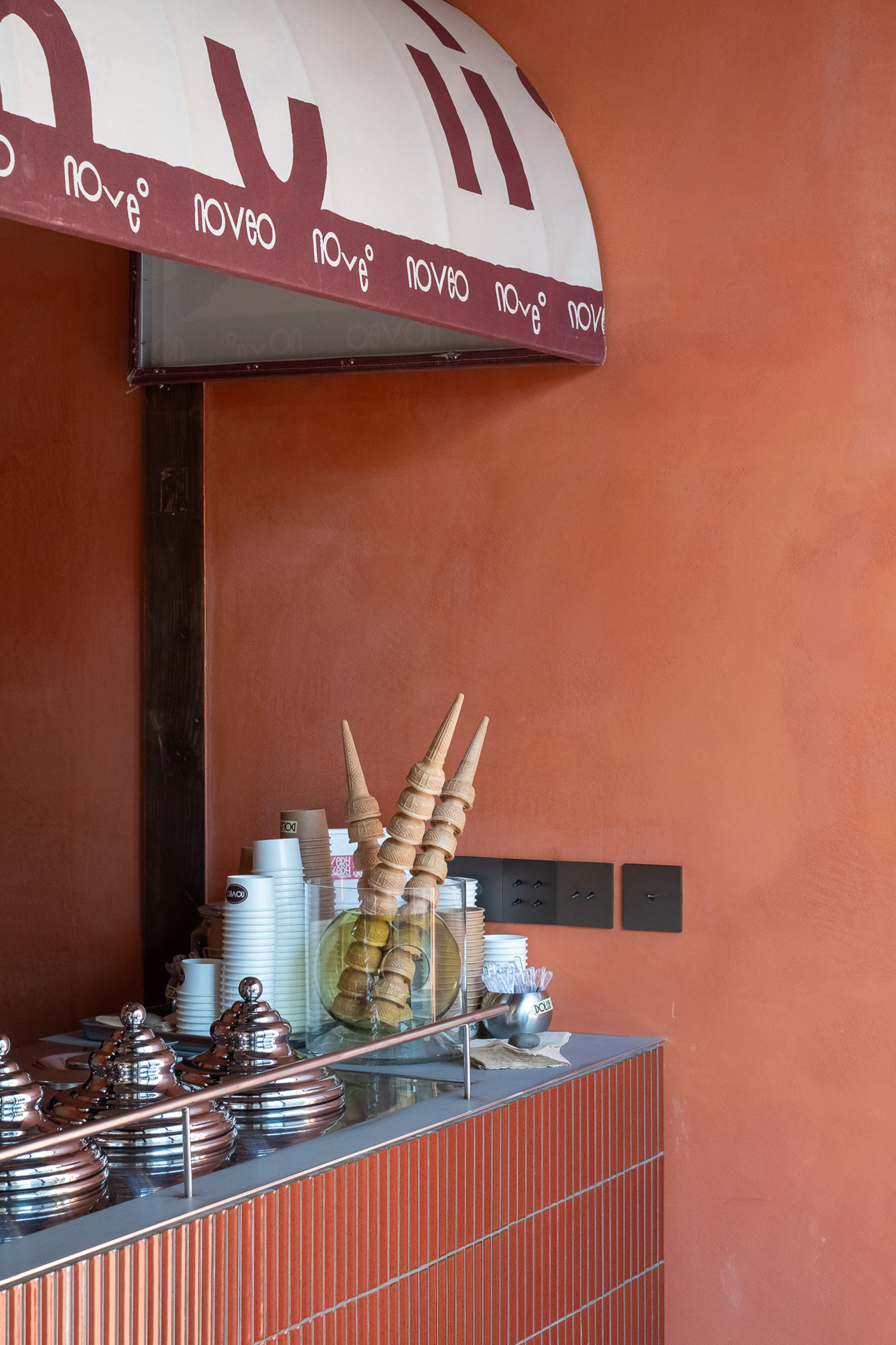
Inside of gelateria Noveo. Image courtesy of ShareWe LC.
Bang: How is Re\Turning Gunsan currently run and staffed?
Song: ShareWe LC. directly manages the entire space, including the hotel, rather than leasing it out. Once everything is fully open, about 40 people will be working here, and half of them will have relocated from Seoul or other cities just to join Re\Turning Gunsan. Many are longtime acquaintances who have run their own businesses in the F&B field. The highlight of the Re\Turning space is the bar, which Yoo Jongyoung of bar Cobbler brought to life by moving down to Gunsan himself. Cobbler is essentially the ‘big brother’ of bar Ingrid. Son Jina of Trevia, a master in ciabatta and focaccia, also relocated to Gunsan. I remember her story of closing her Itaewon shop after more than 15 years—on the last day, one of her young foreign regulars cried, saying he would no longer be able to eat her bread. With her, I want to make pizza here in Gunsan that’s even better than in Italy itself. The gelato shop came together with the help of Go Youngjoo of CacaoBoom, who stayed in Gunsan for several months, assisting as if she were opening her own store. One of her employees, who had worked with her for more than ten years, also joined ShareWe LC. Soon, Jung Seunggi and Park Eunsoo of the famous Busan roastery Casa Oro will also be joining as staff members, and we’ll also open a roastery (which wasn’t even in the original plan).
Bang: I’ve noticed that some of the nearby buildings are also starting to change. Are you thinking about expanding or linking up with others in the neighbourhood?
Song: Yeonghwa-dong really began to come back to life about six years ago, when well conceived new spaces started appearing in Yeonghwa Market. But there were still plenty of empty houses and shops. We later realised this was the result of an urban regeneration project initiated around 2015 that had drawn in outside investors. They bought up properties but left them untouched – no repairs, no reinvestment – just waiting for the opportunity to resell. As we were working on Re\Turning Gunsan, I suggested to friends and acquaintances that we take over some of those vacant houses together as a kind of Friends Group. They began filling them with spaces connected to their own work—lodging, a music label, a fashion shop, a photo studio, a barbershop, even housing. Then, two years ago, a GRAPHIC SHOP run by Kim Kwangchul of propaganda (publishing company) opened, and it’s had a revolutionary and meaningful cultural impact on Gunsan. (laugh) Now it feels like what’s happening isn’t about real estate speculation anymore, but about a healthier kind of growth—people bringing in more people.
You can see more information on the SPACE No. September (2025).

Song Sungjin
1
FEATURE
Brief INTERVIEW
Song Sungjin
Project Re\Turning Gunsan
ShareWe Lc.
playground
fire-prevention zone
jazz club
Jumg Yumi
creative director
collaboration
bar table
timber
stein
tile
Kim Kwangchul
GRAPHIC SHOP
office
art bookstore
exhibition space
Gunsan Book Fair
art book fair
CONNECT GUNSAN
Gunsan Book Center





